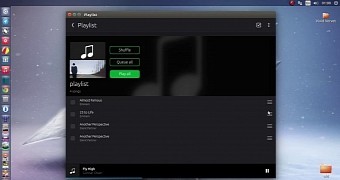Canonical's efforts are going in a single direction, and developers are focusing on an important task: to make a single operating system that can run on any platform. It might seem like an impossible goal, but the truth is that they are getting closer with each new release.
What with all of this talk on convergence, it's hard to put things into perspective. Companies like Canonical don't really make plans for the short term. Their plans are much more advanced than people imagine, and that includes the Ubuntu distribution and its availability on mobile devices like phones and tablets.
The guys at Canonical, and especially Mark Shuttleworth, didn't just make some plans to get Ubuntu on phones, although that's one of their goals. They said that they wanted to see Ubuntu as a mobile operating system more than two years ago, and now they've made it happen, but their final goal spans further than this. The company wants to build a single operating system that can be installed on any medium, albeit desktop, mobile, tablet, or anything else.
Convergence is not about only the interface
Canonical's goal is not to have a similar experience for Ubuntu mobile and desktop users while they have to maintain two different versions of the same distro. They want to have a single code that behaves differently when it's running on a certain platform, but it has the same codebase.
We have presented many examples of this functionality over time. For instance, there's the Music App running on all platforms without any changes to the underlying code. It's not about one giant step; it's about a million small ones in the same direction. This is why developers are aiming at a single Unity 8 desktop environment, why they have their display server, and why they are working on the click format for packages.
Canonical made plans for the long run. Unity 8 will probably become the default in 2016, when the next LTS is released, and that single codebase for Ubuntu is not all that far away. Users are usually interested in the next release, but Canonical is thinking much, much further ahead, and that is why they are successful in most of their endeavors.

 14 DAY TRIAL //
14 DAY TRIAL //